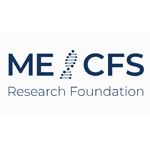Until mid-2024, the foundation will focus its funding on maintaining and expanding the essential ME/CFS research networks that have been established in Germany since 2022.
Since 2022, ME/CFS Research Foundation has been campaigning for more biomedical research on ME/CFS. We and many other organisations, initiatives and patients are calling for more public research funding. For decades, much less research has been done on ME/CFS than on other diseases that occur with similar frequency or even less frequently. The interest of the pharmaceutical industry is correspondingly low to invest money for clinical studies in a disease that has so far been insufficiently researched. As a result, there are still no causal treatment options for this chronic and often severe disease.
This is not only a personal tragedy for the more than 500,000 patients and their families and relatives (data for Germany, as of 2021). The majority of patients can no longer participate in work, school or social life. The lack of research funding for ME/CFS is also a socio-political problem of great dimensions. More than 500,000 patients not only cost the health and social systems a lot of money. They are also urgently needed at workplaces, in their families and in their social environment, or are unable to complete an education. Patients are often too ill to graduate from school.
More funding for ME/CFS research will create better diagnostics and treatment options. This would allow patients to participate in normal life again. As ME/CFS Research Foundation, we are convinced of this and are committed to achieving just that goal.
Today, we would like to make our overall objective as a research-funding organisation more concrete and thus more transparent. Because our work needs a lot of money and commitment, which we can only achieve with many donations and a high level of trust from patients, donors, the scientific community and the public.
Hence, we want to explain our research funding strategy today:
Research funding Strategy – phase 1: Since the establishment of the ME/CFS Research Foundation, in addition to building up the organisation itself, we have initially focused on networking among researchers. Among other things, we helped organise and finance the ME/CFS conference at the Charité in May 2023. Over 60 international researchers presented and discussed their current projects to an expert audience of over 400 participants. Together with the team of the Charité Fatigue Centre (CFC), we will continue to develop this conference into an annual networking event and a reference point for ME/CFS research, both in Germany and internationally.
In addition, we informed patients and the general public about the state of research in Germany in a format of generally understandable language and in German language. For this purpose, following the conference, and in close cooperation with the CFC, on 12 May 2023, the international ME/CFS Awareness Day, we co-organised and financed the ME/CFS Symposium with the Charité. Registrations for the livestreaming of the symposium far exceeded our expectations and the technical resources at the time. This was a great success and a clear sign of the immense interest of patients and the public in up-to-date information on ME/CFS research. We are currently working on new digital formats to better meet this great interest in the future.
The scientific networking of our organisation and our close links with leading ME/CFS researchers recently took another step forward with the announcement of our Scientific Advisory Board . This board will advise and support the Foundation in the orientation and prioritisation of future direct research funding, i.e. in decisions on the allocation of funding to individual project proposals.
Beyond scientific networking - what specific research projects are to be funded by the Foundation in the future?
First, a little background information: As presented at the ME/CFS Symposium the few ME/CFS research projects in Germany were only privately funded for a long time. Since 2020/21, the COVID 19 pandemic and the subsequent wave of post-COVID patients have generated more attention for post-infectious, chronic disease patterns - in medicine and also in politics and the general public. Thus, since 2021, there has finally also been public research funding - at federal and state level (so far in 4 of 16 federal states). In particular, funding from the BMBF (Federal Ministry of Education and Research) and the BMG (Federal Ministry of Health), in conjunction with funding from Bavaria, has made it possible to create the following basic research structures and alliances:
- The ME/CFS Register and the ME/CFS Biobank in which patients with a complete clinical diagnosis are recorded and from which other research projects can select suitable cohorts (more information here);
- The collaborative research network IMMME (Immune Mechanisms of ME/CFS) in which researchers from several universities and research centres are conducting basic research (read more here and here);
- The NKSG (National Clinical Study Group), which establishes and networks important structures and projects in clinical research (biomarkers, diagnostics, therapy studies) (read more here and here and here);
- The BAYNET FOR ME/CFS (Bavarian Network for ME/CFS Research), in which all 6 Bavarian university hospitals were united for the first time in a joint project on ME/CFS care and diagnostics research (read more here and here);
- The project ME/CFS Kids Bavaria of the MRI Chronic Fatigue Centre (MCFC), in which various partners cooperate alongside the MRI TUM to improve the care of adolescents and young adults with ME/CFS (read more here).
However, the important clinical trial platform NKSG, created in this way for the first time in Germany, has so far only been funded until the end of 2023. The continuation of this innovative approach, which combines clinical trials with biomarker and diagnostic research, is currently being negotiated with the BMBF. Further funding has not yet been secured.
Please note: The Federal Minister of Health, Karl Lauterbach announced in July 40 million € for research funding under the Long-COVID-programme that are earmarked for health services research (this is not basic research or clinical studies). Health services research is a very important aspect for the design of health services and their subsequent recognition by health insurance funds. However, diagnostic research (e.g. biomarkers) and therapies are investigated within the framework of translational basic research and clinical trials. These types of research are not part of the BMG (Federal Ministry of Health) funding. The budgets for this are the responsibility of the BMBF (Federal Ministry of Education and Research)..
Update 13.Sept.2023: The BMBF has announced an additional ME/CFS research funding guideline with a budget of €15 million from 2024 for 3 years (see also our summary and commentary).
Research Funding Strategy – phase 2: As agreed with the Scientific Advisory Board, the ME/CFS Research Foundation will initially focus its research funding on maintaining the above-mentioned research structures of ME/CFS basic research and clinical studies (NCSG and IMMME) until mid-2024. It is unlikely that we will be able to meet the full annual funding requirements of these projects in the short term. We will use the funds available to us until the end of 2023 to secure these essential structures and projects as far as possible. In consultation with the responsible researchers, new projects can also be funded on a selective basis that build on these structures and projects and are closely networked with them. In addition to continuing the projects that have already been started, we also aim to expand the topics and increase the number of ME/CFS research projects and ME/CFS researchers in the long term.
Research Funding Strategy – phase 3: As soon as sustainable public funding for the above-mentioned important structures and projects is ensured, we will open our funding to other projects as well. We currently assume that these framework conditions will be clearer by mid-2024. Our funding strategy will be adapted accordingly to the current political framework conditions at federal and state level.
In the meantime, we will work with the Scientific Advisory Board to develop an expanded funding programme for ME/CFS research projects. This funding programme will define the process by which researchers can apply to the ME/CFS Research Foundation for project funding in the future. To this end, we will specify clear selection criteria for funding. These criteria will be based on the project requirements set out in the "Guidelines to research and care for ME/CFS and Post-COVID-Syndrome" developed by the patient organisations German ME/CFS Society and Long COVID Germany and are supported by many other organisations, including the ME/CFS Research Foundation.
We aim to present our project funding from mid-2024 and accept funding applications from then on. Along the way, we will continue to expand our collaboration with other foundations and initiatives in the field of ME/CFS research funding.
Research Funding Strategy – phase 4: As soon as phases 1 to 3 have been successfully completed and initial experience has been gained and the structures and processes for funding ME/CFS research projects in Germany have been established, the ME/CFS Research Foundation will also turn its attention to funding international research projects. Our long-term goal is to support the development and expansion of European ME/CFS research through international fundraising.
Ultimately, our entire commitment is aimed at ensuring that the projects and plans initiated by us and other initiatives succeed in connecting the state of ME/CFS research to other diseases. This should enable researchers to receive more funding from the public sector (federal and state governments) and from established research funding institutions (e.g. the German Research Foundation (DFG)). In this context, the pharmaceutical industry in particular must also recognise the great opportunities for appropriate investment in clinical trials on ME/CFS with the aim of developing causal therapies.
In summary, our research-funding strategy thus consists of these components:
- Phase 1: Support of the international networking of ME/CFS researchers (ME/CFS conferences and public events in cooperation with CFC and MCFC)
- Phase 2: Support the preservation of the central research German networks and structures created since 2022/23 (particularly NKSG, IMMME, ME/CFS Register & Biobank)
- Phase 3: Further development of existing structures (especially NKSG, IMMME, ME/CFS Registry & Biobank) and expansion to include new topics as well as promotion of individual projects
- Phase 4: Expansion of fundraising and funding for projects in other EU countries, in the anticipation and expectation of timely and sustainable public funding by the federal ministries, established research funders and the pharmaceutical industry.
How can you support the work of the ME/CFS Research Foundation?
Vor uns liegt noch ein weiter Weg bis Diagnose, Versorgung und Therapie von ME/CFS Betroffenen eines Tages medizinischer und sozialer Standard werden. Wir als ME/CFS Research Foundation fokussieren uns auf die biomedizinische Forschung, in der wir das Schlüsselelement zur Lösung dieser Probleme sehen. Dafür brauchen wir umfassende Unterstützung von privaten Spendenden – Betroffene, Angehörige, Familien, Freunde, Vereine, Schulen, Netzwerke, Unternehmen, Initiativen, Veranstaltende und alle Unterstützenden. Und wer nicht direkt fördern kann, kann unsere Story teilen und so andere motivieren zu helfen. Denn nur gemeinsam ist so ein Kraftakt möglich.
We fully translate donations and other support into scientifically excellent research, networking and ultimately visible successes, i.e. better ME/CFS diagnostics and therapies. We are happy to work together with other organisations and initiatives - please contact us!
We appreciate all kinds of Support!
Please register for our Newsletter:






